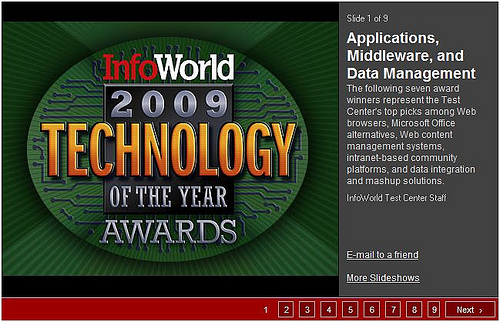 This should probably be a Tweet, but I am not smart enough to squeeze it into 140 characters – perhaps Tumblr or Posterous notes? Anyway, I am in a rambling mood – but I’ll keep it short, just pointing to stuff I read. After all, there’s a reason why my personal blog has the tagline Connecting the dots. 🙂
This should probably be a Tweet, but I am not smart enough to squeeze it into 140 characters – perhaps Tumblr or Posterous notes? Anyway, I am in a rambling mood – but I’ll keep it short, just pointing to stuff I read. After all, there’s a reason why my personal blog has the tagline Connecting the dots. 🙂
The death knell is ringing for Customer Relationship Management (CRM) packages, according to Vivek Ranadivé, Tibco’s chairman and CEO.
“The enterprise 2.0 world we live in today is transaction based, but we are now entering an era where events will replace transactions. We will move from this world where we continually have to ask questions and seek information into one where the information will seek you.”
The technical enabler is the reduction of costs for solid-state memory and the arrival of larger multi-core processors – the result is software that reacts to what we’re doing at any moment in time, instead of us pulling up big monolithic applications.
The other “dot” I’m connecting this to is a blog post by Zoho CEO Sridhar Vembu:
One of the architectural themes that is driving our evolution is the focus on the user’s context and workflow and avoiding the context switch as much as possible. Context switching is expensive. It destroys the flow and rhythm of a users, and is a real productivity killer, as I discussed with Larry Dignan of ZDNet last week…
…the boundary between apps tends to dissolve, as data flows contextually across apps. Apps move to the background, data and context start to dominate. In the cloud world, data is not the slave of any particular application, but flows to whichever context that needs it.
My take: CRM? I don’t even know what it means anymore… just ask Paul Greenberg about the ever expanding definition of Social CRM. It’s certainly not just one application. Same for ERP. Or Office, for that matter.
Applications will go away. Instead, we’ll have functions. Functions that sense what we are doing and offer up the right options – based on both data and perhaps our own activity profile (example: looking at a table – some might process it with a spreadsheet, others prefer a database or word processor). Or just self-acting agents. Micro-chunked functions served up software. I first discussed the concept two years ago.
Now, isn’t this in sharp contrast to what I said about Application Suites? No: first of all, that was a market-reality based view vs. visioning here. Second, it’s Suites are not necessarily monolithic giants, it’s about the integration of apps, bringing the right micro-functions available to the user at the right time in the right context, no matter what the “App” is called, and doing it all in a unified UI environment. Read more on the componentization of software here.
Wow. This is definitely not Twitter-sized. 🙂
(Disclosure: Zoho is CloudAve’s exclusive Sponsor)

(Cross-posted @ CloudAve)



Recent Comments